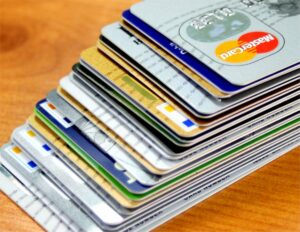Do you travel with cash? Or do you keep everything on credit cards and debit cards? How do you protect your money when you travel overseas?
Using cash anywhere can be bothersome which is probably why most people today use cards. It’s been seen as less-than-ideal for travel, according to Travel Daily News. Paper money can get lost and is typically gone forever as a result — you can’t go to the bank and get replacement cash. So are the dreams of a fantastic trip. Pickpockets and muggers are everywhere, just waiting to snatch your cash.
But alternatives to cash are aplenty, and you can still pay and protect yourself. Here are just a few to consider for your next trip.
1. Neteller and other e-wallet apps
Neteller is an e-wallet that allows fast and easy transfers between various merchants, including forex trading firms and social networks. The Net+ card allows users to withdraw funds from almost anywhere and receive currency in the country in which they are traveling.
Neteller is a leading company in the digital payment field. It was founded in Canada 1999 and was picked up by PaySafe Group in 2015. It had humble beginnings as a method of processing online gambling payments in 2000 and had partnered with 85 percent of online casinos at that time.
You can use similar e-wallet apps like Apple Pay and Google Pay in order to avoid carrying a wallet or credit cards. Just set it up at home and then practice using it around town so you understand how it works.
2. Get prepaid cards before you travel
 These plastic cards are still a viable and preferred option for payment in some locations. The idea is to load funds onto the card before departing on your trip. Use them in the same manner that you would use a debit card, and some of them can be used to access cash from an ATM.
These plastic cards are still a viable and preferred option for payment in some locations. The idea is to load funds onto the card before departing on your trip. Use them in the same manner that you would use a debit card, and some of them can be used to access cash from an ATM.
You can get prepaid credit cards that function just like Visa and MasterCard, or if you’re heading to a particular location that has their own prepaid cards — even restaurant gift cards — you can load those up as well. Your bank may also offer these cards.
Another plus is that should these cards be lost or stolen, it is much more difficult for thieves to access your funds. Just DON’T write your PIN on the card or else your security is compromised. If your card does end up lost or stolen, call the issuing company and report the missing card so your money is still protected.
3. Get an RFID Blocking Wallet or Purse
One of the benefits of RFID — radio-frequency identification — is that it lets you find information about items with an RFID tag. For example, you can use it to track items in a store or warehouse, or even scan an RFID document like a passport.
Unfortunately, those same kinds of readers can be used by thieves to skim your information from RFID-enabled cards and even your passport. You can protect yourself by putting everything into an RFID-blocking wallet or purse. This way, crooks with RFID skimmers won’t be able to access any of your personal information and skim your funds from your accounts.
Finally, be sure to let your bank and credit card issuer know when you’re traveling so they don’t cut off your cards because of suspicious activity. If you’re at home one day and then in Portugal on the next, they may assume your card has been compromised and shut off all access in the middle of your trip.
How do you protect your cash and cards when you travel? Do you take steps to minimize a loss if something goes wrong? Or do you have any stories you want to share? Tell us about them on our Facebook page, or on our Twitter stream. You can also find us on our Instagram page at @TravelproIntl.
Photo credit: Nick Youngson, Alpha Stock Images, (Picpedia.org, Creative Commons 3.0)
